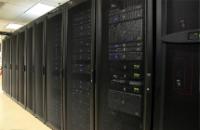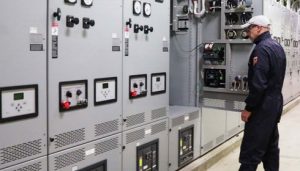 The 2020 CARES Act corporate tax incentives provide companies new tax breaks to invest in capital equipment. Recognizing the investment many companies are facing to implement new safety measures, facilitate staff working remotely, and re-tool existing infrastructure to support a seismic shift in the way we do business, Congress included tax codes to the 2020 Coronavirus Aid, Relief, and Economic Stability (CARES) Act to incentivize organizations to invest in the capital improvements needed to stay competitive and successful under new circumstances.
The 2020 CARES Act corporate tax incentives provide companies new tax breaks to invest in capital equipment. Recognizing the investment many companies are facing to implement new safety measures, facilitate staff working remotely, and re-tool existing infrastructure to support a seismic shift in the way we do business, Congress included tax codes to the 2020 Coronavirus Aid, Relief, and Economic Stability (CARES) Act to incentivize organizations to invest in the capital improvements needed to stay competitive and successful under new circumstances.
Normally, as priorities shift, it’s common for investment in power infrastructure equipment modernization, upgrades and replacement to be postponed. Often, it takes a costly outage or unplanned downtime to catapult infrastructure spending to the top of the list. Waiting to replace outdated critical power equipment is asking for downtime. The CARES Act corporate tax incentives are intended to encourage companies of all sizes to upgrade critical infrastructure by allowing a 100% deduction of capital improvement project costs in a single year*.
Signed into law in March of 2020, the CARES Act temporarily makes favorable tax changes available for businesses that purchase qualified improvement property (QIP) during and immediately after the pandemic. Unless Congress changes the language to these new tax codes, we can expect these incentives to remain in place past 2020 and into the immediate future. Those QIP purchases can now be fully deducted in a single year. This is a change from the prior tax laws that required deductions be spread over 39 years.
For businesses including data centers, hospitals and healthcare centers, office buildings, manufacturing facilities, transportation and logistics hubs, and more, the cost of power and cooling equipment products and services that are installed or upgraded may be fully deducted, without limitation on the size of the project. This tax incentive aims to assist critical facilities in the modernization, upgrade, or replacement of critical infrastructure.
Capital budgets are stretched thin and many facilities have put off replacing aging power equipment or modernizing existing infrastructure. Allowing a 100% deduction of the project cost this calendar year can have a significant impact on the bottom line. Additionally, the CARES Act corporate tax incentives can be combined with other tax codes such as renewable energy tax credits and utility rebates. We recommend reviewing all of the new and existing programs and incentives with your tax advisor.
What types of products and services qualify?
- Uninterruptible Power Supplies (UPS)
- HVAC equipment including sensors, valves, and airflow management
- Data Center Infrastructure Equipment
- Building Management Systems
- Other non-structural upgrades including equipment and installation costs
What types of products and services do not qualify?
- New construction
- Upgrades to the facility’s structure (e.g., expansions, remodeling, etc.)
- External envelope of the building (e.g., windows, doors, roof, cladding)
- Certain equipment (e.g., elevators)
By purchasing new equipment to replace aging power and cooling equipment, you can increase the efficiency of your facility, lower energy costs, and ensure uptime. If you choose to modernize, you can get even more out of your existing equipment. Adding management software will allow you to manage your power infrastructure remotely and react immediately to uptime threats. Sensors, another QIP, would add security or better environmental control to your system.
Potential Tax Savings with the CARES Act Corporate Tax Incentives
Schneider Electric has published the example below of a hypothetical hospital that invests $1,000,000 in a digital building management system upgrade, including new smart devices (e.g., sensors, room controllers, valves, actuators). The chart shows the tax benefits before and after the changes the CARES Act made to Section 168 of the tax code.
| Impact of the CARES Act on the Section 168 Deduction | Section 168 before CARES Act | Section 168 with CARES Act Incentives |
| Total project cost (equipment and installation) | $1,000,000 | $1,000,000 |
| First year tax deduction | $25,641 | $1,000,000 |
| Corporate tax rate | 21% | 21% |
| Tax savings in year one | $5,385 | $210,000 |
| Net project cost in year one | $994,615 | $790,000 |
The tax relief included in the CARES Act corporate tax incentives is meant to be temporary, with current language limiting the single-year deduction benefit to purchases made in the next couple of years. While all current indications show the new tax codes will be in place beyond 2020, the ongoing Congressional discussions regarding the best way to support US businesses during the Coronavirus economic crisis serve as a reminder that anything can change.
* Always consult your tax advisor to confirm eligible tax deductions
Tax reference for this article: Ernst & Young LLP, Tax News Update, March 31, 2020
For more information about the CARES Act Corporate tax incentives and qualifying equipment,
call 86 21 5859 8677 or email sales@alphaenertech.com.

